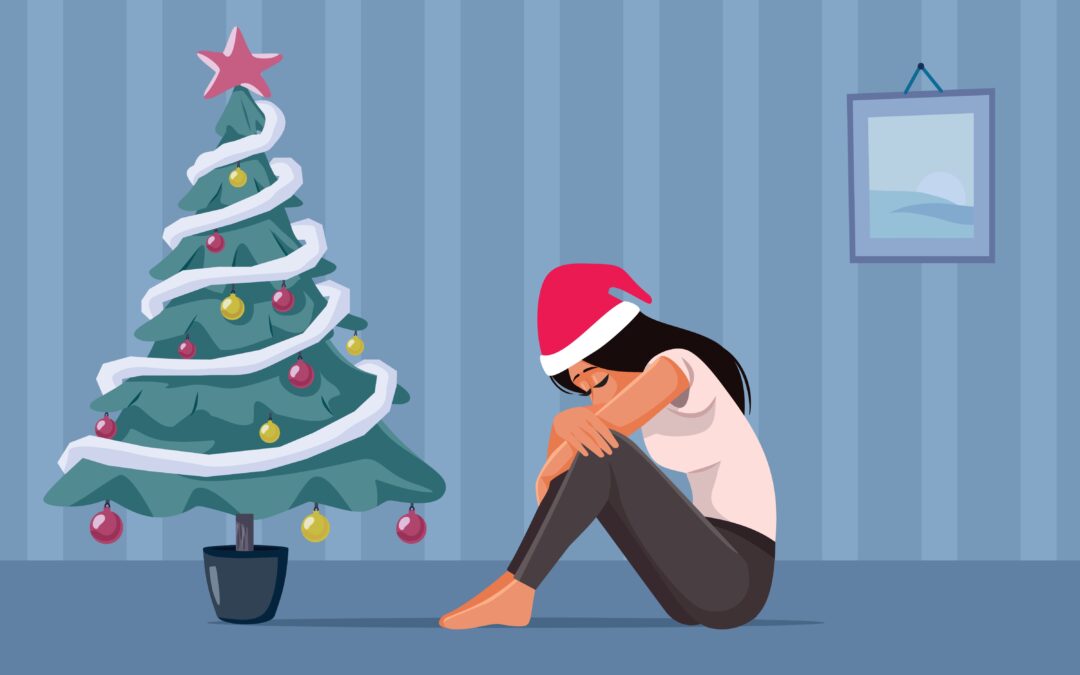The holiday season, portrayed in vibrant colors and joyful tunes, is often associated with happiness, togetherness, and celebration. Yet, beneath the surface of festive decor and holiday cheer, many individuals face a starkly different reality. The holidays, for various reasons, can significantly impact mental health, sometimes exacerbating existing conditions or triggering new stressors. This article delves into the complex relationship between the holiday season and mental well-being, uncovering why this time might not be merry for all and what we can do to manage and support mental health during this period.
The Dichotomy of the Holiday Season
The holidays are a time of dualities: joy and stress, togetherness and loneliness, celebration and reflection. While some look forward to the season, others dread the emotional rollercoaster it brings.
Seasonal Stressors
- Financial Pressure: The expectations of gift-giving can lead to financial strain, causing significant stress and anxiety, particularly for those already managing tight budgets.
- Social Overwhelm: The barrage of social engagements can be exhausting, especially for introverts or those with social anxiety, turning holiday cheer into a source of dread.
- Family Dynamics: For many, family gatherings are far from the idyllic scenes depicted in holiday movies. They can stir up old conflicts, opening emotional wounds and triggering stress or depression.
- Grief and Loss: The holidays can be a poignant reminder of loved ones who are no longer with us. This season often intensifies grief, making coping more difficult.
The Impact on Mental Health: Depression and Anxiety Around the Holidays
The effects of holiday stressors on mental health are profound and far-reaching, affecting individuals across various spectrums of mental well-being.
Worsening of Existing Conditions
- Depression and Anxiety: Those already dealing with depression or anxiety may find their symptoms worsen due to the increased stress, social pressure, and potential family conflict during the holidays.
- Substance Abuse Disorders: The prevalence of alcohol at holiday events can pose a relapse risk for individuals in recovery, while others may turn to substance use as a coping mechanism for holiday-related stress.
Emergence of New Challenges
- Seasonal Affective Disorder (SAD): The reduced daylight during the winter months can lead to SAD, characterized by symptoms of depression, lethargy, and changes in sleep patterns.
- Holiday Blues: Even individuals without a history of mental illness can experience the “holiday blues,” a transient state of sadness or anxiety during the season.
The Underlying Causes of Depression and Anxiety Around the Holidays
The causes of holiday-induced mental health challenges are multifaceted, often interwoven with personal, familial, and societal expectations.
Unrealistic Expectations
- Media Portrayals: Movies, advertisements, and social media often present an idealized version of the holidays, leading to unrealistic expectations that one’s holiday experience should be perfect.
- Personal Aspirations: Individuals may place undue pressure on themselves to create the perfect holiday for their family, leading to disappointment and feelings of inadequacy when reality falls short.
Societal Pressures
- Commercialization: The commercial aspect of the holiday season can overshadow its more meaningful aspects, leading to a sense of emptiness or disillusionment.
- Cultural and Religious Expectations: The emphasis on certain cultural or religious practices during the holidays can be alienating for those who feel disconnected from these traditions or who are far from home.
Strategies for Managing Mental Health During the Holidays
In light of these challenges, it is crucial to develop strategies to manage mental health during the holiday season effectively.
Setting Boundaries
- Learn to Say No: It’s okay to decline invitations or commitments that feel overwhelming or unnecessary.
- Limit Spending: Create a budget for the holidays and stick to it to avoid financial stress.
- Balance Alone Time: Ensure you schedule downtime to recharge, particularly if you are introverted or easily overwhelmed by social gatherings.
Self-Care and Well-being
- Maintain Routines: Try to keep to your regular routine as much as possible, including sleep schedules, exercise, and eating habits.
- Practice Mindfulness: Engaging in mindfulness practices can reduce stress and improve mood.
- Seek Sunlight: Exposure to natural light can be particularly helpful for those affected by SAD.
Emotional Support
- Reach Out: If you’re feeling low, reach out to friends, family, or support groups who understand what you’re going through.
- Volunteer: Helping others can provide a sense of purpose and reduce feelings of loneliness.
- Professional Help: Don’t hesitate to seek professional help if you’re struggling to cope. Therapists and counselors can provide support tailored to your needs.
Conclusion: Embracing a Holistic Holiday Experience
The holiday season is not solely a time for celebration but also a period of heightened vulnerability for many individuals facing mental health challenges. Recognizing and validating the myriad emotions that arise during this time is the first step in fostering a more supportive environment. By adjusting our expectations, prioritizing self-care, and offering support to those around us, we can transform the holiday season into a time of true connection and compassion.
Let’s embrace a holistic approach to the holidays — one that acknowledges the full spectrum of human experience and offers grace to ourselves and others. This season, may we all find moments of peace, joy, and comfort, no matter what our mental health journey looks like.

